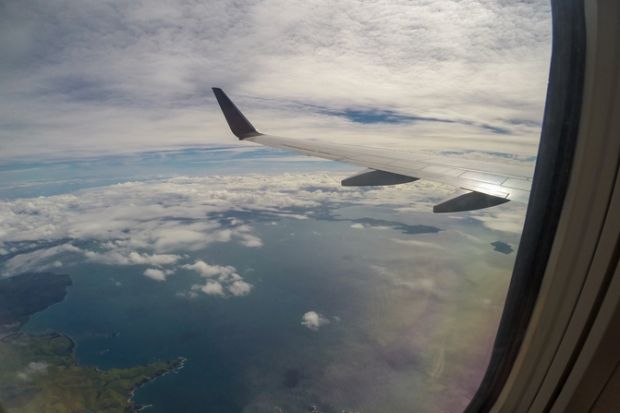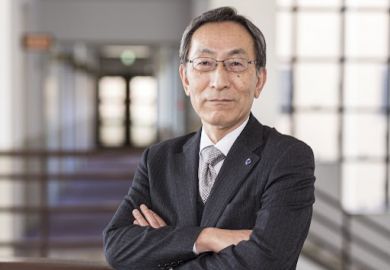The vice-chancellor of the troubled University of the South Pacific (USP) has been deported to Australia by immigration officials in Fiji, where the multi-country institution is headquartered.
Pal Ahluwalia and his partner, Sandra Price, were placed on a flight to Brisbane after being detained overnight on 3 February.
A letter to Professor Ahluwalia from the Fijian Immigration Department declares the couple to be “prohibited immigrants” who are “ordered to leave Fiji with immediate effect”.
The letter says the minister for immigration has deemed the vice-chancellor to be “a person who is or has been conducting himself in a manner prejudicial to the peace, defence, public safety, public order, public morality, public health, security or good government of the Fiji Islands”.
The drama is the latest instalment in a governance crisis that has pitted Professor Ahluwalia, a Kenyan-born social scientist who has worked as a university executive in the UK and Australia, against pro-chancellor Winston Thompson.
The dispute stems from allegations of abuse of office that Professor Ahluwalia raised against USP administrators months after he joined the university in late 2018. An investigation of the claims was mounted by the Fiji Independent Commission Against Corruption but later referred back to the university.
An independent probe by a forensic accounting firm upheld some of the allegations, leading the university to implement recommendations to improve governance and transparency.
But council members’ dissatisfaction with Professor Ahluwalia’s handling of the issue led to his suspension in June last year. While that decision was quickly overturned, he says he has endured a plethora of investigations in a “vendetta” orchestrated by Mr Thompson, who in October levelled fresh allegations that Professor Ahluwalia had deliberately bypassed governance processes.
Mr Thompson confirmed the vice-chancellor’s deportation and said the government had not explained the reasons to the university. “The circumstances are not all clear at this stage,” he said.
He said he expected an interim vice-chancellor to be appointed within the next day. “There is of course a great deal of emotion involved, so we’ll wait until things simmer down and we can move logically,” Mr Thompson said.
“The reality is that the government of Fiji, which is the home of the university, has taken action that we have got to live with. As far as we’re concerned a decision has been taken, so we’ll accommodate it as best we can.”
Fijian broadcaster FBC News reported that Professor Ahluwalia had asked officials the grounds of his deportation and been told that he posed a “public risk”. He told the broadcaster that he remained vice-chancellor.
Mr Thompson said this was not true. “His contract states quite clearly should he lose his work permit, then his contract is terminated forthwith,” he said.
The episode is the latest example of reformist foreign vice-chancellors being forced to leave Melanesia after falling foul of authorities and governing councils. In 2018, British botanist John Warren fled Papua New Guinea after a falling out with the council of the Rabaul-based University of Natural Resources and Environment.
Dutch environmental economist Albert Schram was deported from PNG in 2013 and left again in 2018 over disputes involving his leadership of the Papua New Guinea University of Technology in Lae.




